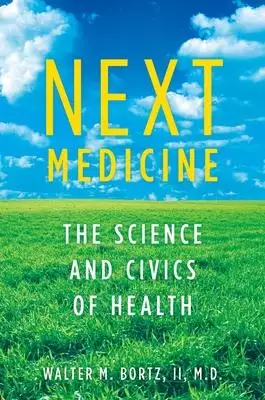Why is civics class 的問題,透過圖書和論文來找解法和答案更準確安心。 我們找到下列各種有用的問答集和懶人包
Why is civics class 的問題,我們搜遍了碩博士論文和台灣出版的書籍,推薦Bortz, Walter M., II寫的 Next Medicine: The Science and Civics of Health 可以從中找到所需的評價。
國立臺灣科技大學 數位學習與教育研究所 黃國禎所指導 陳卉芸的 基於形成性評量之情境決策遊戲對公民課程學習成就之影響 (2020),提出Why is civics class 關鍵因素是什麼,來自於情境式學習、遊戲式學習、形成性評量、公民課程。
而第二篇論文國立臺灣師範大學 公民教育與活動領導學系 王錦雀所指導 劉思妤的 問題導向學習應用於普通型高中社會領域公民與社會科教學的行動研究 (2020),提出因為有 問題導向學習、PBL、十二年國民基本教育、普通型高中、社會領域課程綱要、公民與社會的重點而找出了 Why is civics class 的解答。
Next Medicine: The Science and Civics of Health

為了解決Why is civics class 的問題,作者Bortz, Walter M., II 這樣論述:
Every year, the average American spends about $7,300 on medical expenses. The typical Canadian pays $2,700, the Briton only $2,000. And yet, according to the World Health Organization, our healthcare system, in terms of total quality, ranks thirty-eighth in the world, right between Costa Rica and
Slovenia. Not only do 40 million Americans lack health insurance, but more than 200,000 die each year because of medical mistakes. Our average life expectancy is lower than Cuba’s. In Next Medicine, Dr. Walter Bortz zeroes in on why the American medicine is spiraling toward disaster. A physician w
ith fifty years of experience and a leading authority on aging, Bortz argues that the financial interests of biotech and drug companies have distorted the healthcare system. Thanks to them, medicine today is economically motivated to treat disease rather than to prevent it. Heart disease, for exampl
e, is widely treated with drug interventions and invasive surgery--both of which are extravagantly profitable for pharmaceutical giants and hospitals. Daily exercise and a healthy diet, on the other hand, can prevent heart disease, and can be obtained by patients essentially for free--but there’s no
money in that. The medical-industrial complex has a vested interest in keeping us sick, and until that changes medicine will fail to effectively address the leading cause of disability and mortality today: chronic diseases like diabetes that are largely preventable. Bortz proposesa medical system t
hat emphasizes personal responsibility and provides incentives for healthy lifestyle choices, along with new training for medical professionals. Through a lively narrative full of personal anecdotes and jarring statistics, Bortz makes a powerful case for a radically new medical system--one that is b
ased on rigorous science and loosens the strangle hold of corporate interests on American health.
基於形成性評量之情境決策遊戲對公民課程學習成就之影響
為了解決Why is civics class 的問題,作者陳卉芸 這樣論述:
本研究提出基於形成性評量策略的情境決策遊戲模式,透過提供即時的評量和回饋,幫助學生檢視自身的學習狀況,以提升其學習成就。為了驗證這個方法的效果,本研究採用準實驗設計,應用在高中高民課程的學習活動中。實驗對象為臺北市高中一年級兩個班的學生,一個班為實驗組,另一個班為控制組。實驗組使用基於形成性評量之情境決策遊戲,而控制組使用一般情境決策遊戲。研究結果顯示,實驗組在學習成就、學習動機、問題解決能力以及批判性思考傾向都顯著優於控制組。此外,透過學習行為模式分析可以得知,控制組的學生透過一般遊戲的成敗回饋,在決策過程中,不易針對錯誤進行即時反思並改進學習成效;即使最後有總結性的回饋,對於其學習助益幫
助不大。另一方面,實驗組的學生透過即時知識的反饋,可以立即反思遭遇的問題,並進行修正,隨後重新挑戰學習任務;這樣的方式,不僅提高學生的遊戲信心及興趣,更對於學習成就有明顯的助益。
問題導向學習應用於普通型高中社會領域公民與社會科教學的行動研究
為了解決Why is civics class 的問題,作者劉思妤 這樣論述:
本研究立基於108學年度起於我國高級中等學校實施的十二年國民基本教育課程綱要,以「問題導向學習」(Problem-based Learning,PBL)為高中公民與社會科課程教學方案設計之架構,採取質性方法實施為期一學期兩循環之行動研究,欲對教學實務現場教師與學生面臨的學習困境帶來改變與省思。 本研究以109學年度入學的高一學生為研究對象,在高一上學期的公民與社會科課堂進行包含暖身活動、前導教學和問題導向學習式教學,共十堂課的問題導向學習課程。期望透過教學策略的創新、有效結合新課綱強調之素養精神,引導學生以自身為學習主體的學習模式,培養「學習」所需的專業知能,在學會公民學科課程所期待的
學習內容、學習表現目標的同時,亦在素養能力上有所成長。 分析研究者自身課程設計歷程紀錄和教學省思札記、協同研究教師的課堂觀察記錄與訪談回饋、學生的學習產出與學習反思回饋等質性資料,研究結果顯示學生問題導向學習應用於高中公民與社會科教學,能幫助學生增進探究思考、理解與表達、統整分析公民科學習內容的素養,累積自主學習能力和團隊合作學習經驗;透過「問題導向學習」模式,能引導學生發現公民與社會科課程與實際生活的連結、提升資訊擷取和實作能力,並建立學生自我引導學習、應用知識解決生活化問題的方法和歷程。 由本研究結論可知,問題導向學習對於學生達成十二年國民基本教育課程綱要中的社會領域核心素養,
以及普通型高中公民與社會科學習內容和學習表現,皆有正面助益。